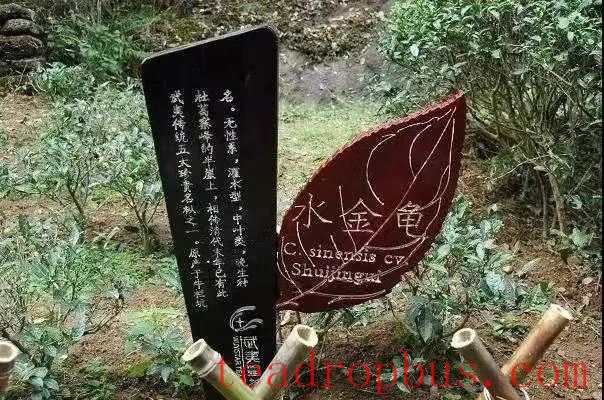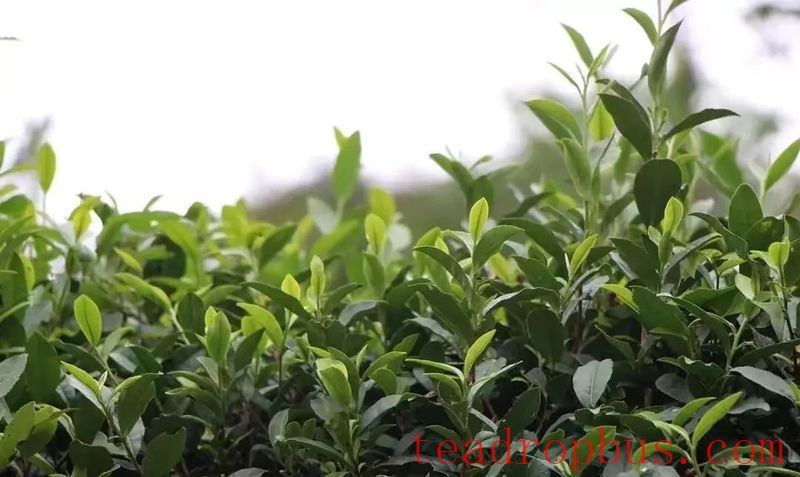Characteristics of the Shuijingu Tea Variety
Shuijingu, named for its branches that crisscross like the pattern on a turtle's shell and its dense, glossy leaves resembling a golden turtle. It is one of the “Four Famous Bushes” of Wuyi Rock Tea, grown on the semi-cliff beneath Sheggai Peak in Nulan Pit, Wuyi Mountain area.
Shuijingu is typically harvested in mid-May, with two or three leaves selected as the main material. It combines the sweetness and smoothness of Tieguanyin with the fresh aroma of Green Tea, making it a precious dry tea. Known for its excellent health benefits, Shuijingu has earned the reputation of being a “Treasure of Health,” praised internationally as “The Nectar of All Things and a Magical Medicine.”

Manufacturing Process
As a late-season variety, Shuijingu is harvested in mid-May, with two or three leaves as the primary material.
Processing method: withering (sun withering) – rolling – fermentation – roasting – re-roasting.
Images
Appreciation of the Tea
(1) In terms of appearance, high-quality Shuijingu features plump, evenly curved, naturally loose strands with a dark green, lustrous sheen; strands that are tightly bound and dull in color are of lesser quality.
(2) Looking at the infused leaves, Shuijingu should have soft, glossy leaves that are uniformly thick, neatly edged with a ruddy hue, known as green leaves with red borders.
(3) In terms of liquor color and taste, Shuijingu produces a golden-yellow, clear and lustrous broth with a delicate floral and fruity fragrance, subtle and lingering. Its flavor is mellow and sweet, smooth and refreshing, with evident rock characteristics, and can be consumed without bitterness or astringency even when steeped strongly.

brewing Instructions
A 100 ml white porcelain Gaiwan is recommended. White porcelain does not absorb aroma or liquid, fully showcasing the plum blossom fragrance of Shuijingu, which is elegant and pleasant.
Suggested brewing vessel: gaiwan (approximately 100 ml)
Suggested tea quantity: 6-8 g
Water: mountain spring water or mineral water
Water temperature: 100°C boiling water
Number of infusions: about 10
With a larger amount of tea, simply pour hot water over it and serve immediately.
Storage
The storage of new Shuijingu tea involves a process of “re-drying.” Place the entire bag of tea in a quicklime jar for 48 hours to remove any remaining moisture, ensuring the tea is dry. For home storage, Ceramic jars or double-layered metal cans can be used, or nitrogen flushing and refrigerator storage can be employed. An ideal storage environment is one that is cool, dark, and free from humidity.
Health Benefits
(1) The tea polyphenols in Shuijingu help to eliminate free radicals in the body, delaying aging, reducing cholesterol and triglyceride levels in the blood, and decreasing lipid deposition. They also effectively lower blood viscosity, prevent high blood coagulability, and inhibit thrombosis.
(2) Shuijingu can reduce the content of aortic intimal plaques and increase capillary resistance, helping to prevent cardiovascular diseases.
(3) The catechins in Shuijingu have astringent effects on the gastric mucosa, appropriately inhibiting gastric juice secretion, aiding in stomach healing and enhancing digestive organ health.
(4) Shuijingu also has other benefits, such as quenching thirst, stimulating the central nervous system, relieving fatigue, sobering up from alcohol, precipitating harmful ions, anti-inflammatory and antibacterial properties, inhibiting viruses, and radiation protection.